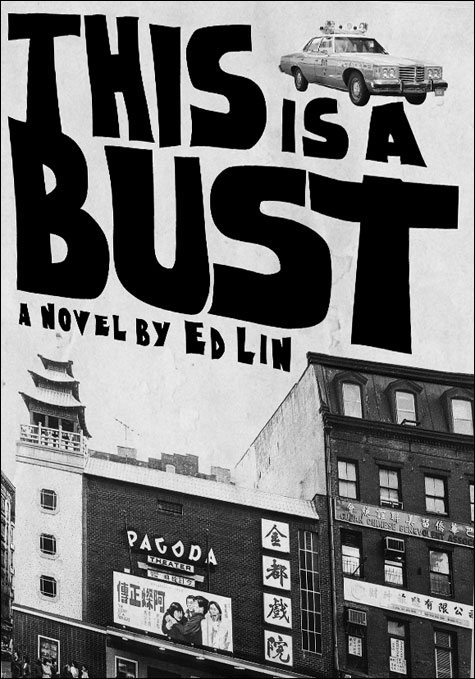
BUSTED: Ed Lin. |
| This Is A Bust by Ed Lin | Kaya Press | 345 pages | $14.95 | Reading 7 pm July 17 | Longfellow Books, One Monument Way, Portland | Free | 207.772.4045 |
Set in New York City’s Chinatown during America’s bicentennial and the pessimistic aftermath of the Vietnam War, Ed Lin’s second novel, This Is a Bust, is ripe with political, institutional, and racial turmoil. Lin’s Chinese-American protagonist, Robert Chow, returns from active duty to take a position with the New York Police Department — reeling from budget problems and subsequent staff cuts — as a beat cop in his home neighborhood.Vaguely scarred by the war and frustrated with his marginal job, Chow is fair-minded but increasingly temperamental, drinking morning and night to, in essence, remain sober on his beat. A suspicious death in Chinatown presents Chow with a chance to prove his utility as a detective among his neighbors, but his superiors prefer him glad-handing on the street, in hopes pictures of Chinese residents and Chinese cops will make it into newspapers. Chow’s a walking PR rep, and he’s not happy about it.

This is the novel’s most intriguing dilemma, forcing Chow to remain genial with both his bosses and Chinatown’s citizens while daydreaming about a more demanding job. Chow’s rapport with his neighbors is apparent, if strained at times — he still has to meet quotas on parking violations — and his skills as a translator and ambassador would be an obvious help in solving crimes. His commanding officer is more interested in having him prove how “integrated” the police department is with the community, so Chow mopily walks a beat “as tame as a chihuahua,” attending Girl Scout and YMCA fund-raisers before late-night benders in his unkempt apartment.
Chow’s frustrations are strained by Lin’s ultimately awkward decision to write the book in hardboiled, first-person prose. The setup is ironic — a detective story told by a cop who hasn’t been able to prove himself a detective — but Chow always feels too even-keeled, even in his alcoholism, to play the tough guy Lin wants us to think he is. His weary punchlines (“There was nothing I could do now, except 17 more years. Then I could get my stupid pension.”) and mundane activities suit the genre’s terse attitude, but most of Chow’s grittier quips (“Most daytours and nighttours would end with me drinking my fucking eyeballs dry.”) are unconvincing. It’s hard to believe he’d get worked up about much of anything.
Though This is a Bust is a less successful novel than Lin’s debut, Waylaid (2002, Kaya Press) — a ribald, sharp coming-of-age story about a 12-year-old boy who works at his parents’ seedy motel and just wants to get laid, the book feels like Junot Diaz on Cialis — it’s more ambitious and sociologically acute. Lin weaves an impressive tapestry of inter- and intra-racial relationships and gives a clear cultural foundation to them all, exposing rifts between a melting pot of citizens stereotyped by the neighborhood they work in: old and young Chinese; entrepreneurial, business-class, and service-industry Chinese; black, white, and Chinese cops; cops and “suspicious” teens of different races; and Taiwanese and mainland Chinese.
The subtle tensions and traditions between all of these groups make for some very vivid minor characters — an elderly man who helps non-English speakers prepare their letters for mailing at the post office; a dwarf who’s never lost a card or board game in the park; Chow’s former partner, a black detective who tries to keep Chow’s attitude in check — and Chow, embittered as he is, is an excellent soundpost. The varied backgrounds and agendas of his neighbors and coworkers reveal Chow to be a more sympathetic character than his jaded narration would otherwise indicate. When he hits bottom — becoming pugnacious, drunk, and verbally abusive on the job — the helping hands that save Chow act out of genuine respect and concern, not just for the sake of a happy ending.
Christopher Gray can be reached at cgray@thephoenix.com.